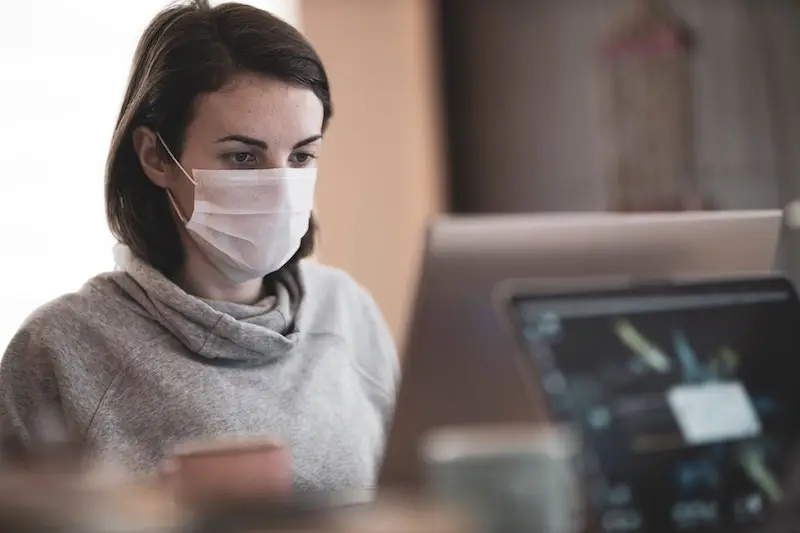A “Cold Take” on COVID-19’s Impact on Higher Education

COVID-19 impacted every area of life. Living “in it” is one thing but what can we learn from looking back from a distance?
Some things are like microbes. Others are like galaxies.
Microbes require us to “zoom in” to understand them. Galaxies require us to zoom out.
Sometimes, we understand things better when we get up close and personal with them. Other times, we understand things best a bit of a distance.
History is like that sometimes. And in a digitally-connected world where news is spread and evaluated immediately, distance can be a really good thing.
That’s why this isn’t a “hot take” on the pandemic’s impact on education. We’re at least a year or two removed from the pandemic and we can now look back and evaluate the educational impact from a little distance. The heat of the moment has “cooled off” so to speak. We’re ready to think about this critically again.
The future of education in your inbox.
Get productivity tips, commentary, and Unbound updates sent to you!
Higher Ed Impact From COVID-19
So how did the pandemic impact higher education? How are students and parents to think about their higher ed approach in light of these influences?
This article won’t pretend to present an exhaustive answer to those questions. But we’ll make a good start.
“Zoom University”
I’ve written in the past about “zoom university”. This phrase refers to the move to online instruction that the majority of colleges and universities made in 2020. While many people started working remotely due to lockdowns, students studied remotely.
In the Fall of 2020, the Guardian asked the question that many students had already been asking for months: was the cost of college worth it even when school moved online?
Now, at Unbound, we’ve questioned the cost of the traditional college path, period. But when you add on top of the debt and high tuition costs, the fact that students are now isolated and attending lectures on Zoom, it gets hard to argue for the value of “zoom university”.
The value of education shouldn’t be confused with the value of a college degree earned through watching lectures online. Education is incredibly important. But the “zoom university” phenomenon showed that simply sitting on one’s bed watching professors teach over Zoom was not worth the thousands of dollars that students were paying.
There is a lot of free information on the internet. And Zoom university forced students to ask the obvious question: why should I pay thousands for learning online when I can do it for free? When lockdowns came and campuses sent students home to learn online, the traditional “college experience” was lost. No more dorm parties, sporting events or open doors at the student centers.
This draws us to the question: when we pay thousands for a college education, what are we actually paying for?
Community as an Education Essential
Besides putting the cost of college degrees into question, the COVID-19 lockdowns also showed that community is essential for education.
No one learns in isolation. In fact, no one can truly live in isolation for very long. There’s a reason that solitary confinement is so intense.
We are not educating machines. We are educating people. And we should educate them as people. If people can’t function as intended without community and fellowship with other people, we can’t ignore this element in their education.
Regardless of what you may personally think about the stereotypical “community” that many college students comprise and are exposed to, it’s quite important to recognize that community is a central component of education. We learn from those we live with. We learn from those we are in relationships with.
The importance of community is a hard-taught lesson from the early lockdowns.
The Emerging Education After COVID-19
There are plenty of other disruptions within education that were brought about by the pandemic. But for our purposes in higher education, these deserve special emphasis.
The educational model that emerged out of the pandemic was more interested in real value over stated value. We began to evaluate higher education on objective terms rather than accepting the excessive price tags and taking them for granted.
The emerging education models also prioritized practical career preparation for a changing and uncertain world. The ability to quickly and effectively master complicated information has never been more relevant in an age of constant change, artificial intelligence, and technological disruption.
Finally, community must be a central element in education and life preparation. Christian young people especially need to build strong communities where they can learn and live out their values and their faith.
The old way of higher ed is going to a “box school” and paying thousands of dollars to do so. The new way is taking advantage of the technology we have available to learn and live in the real world while building relevant skills and experience in preparation for your future.
The new way looks a lot like Ascend. This program enables students to build real-world skills and experience in fields they’re interested in while plugging them into a strong Christian community. The benefits of in-person community and remote learning are combined so that students launch with local investments and roots and a national network. Schedule a free consultation to learn more.



